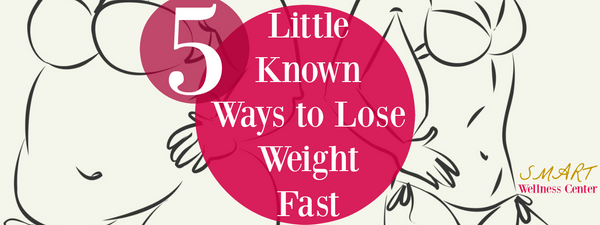
The brain and the gut are powerfully connected and share a bidirectional communication channel. Understanding this interconnectivity is essential for optimizing brain and gut health.
According to researchers in China "All the results suggest that AD [Alzheimer's Disease] may begin in the gut, and is closely related to the imbalance of gut microbiota. Modulation of gut microbiota through personalized diet or beneficial microbiota intervention will probably become a new treatment for AD."
Six hours after Traumatic Brain Injury (TBI) intestinal permeability significantly increases which “may lead to bacterial translocation, sepsis and eventually multi system organ failure.” A rather shocking finding that is published in the Journal of Neurotrauma 2009 . (1)
Another study published in Frontiers in Systems Neuroscience April 2016 measured methionine, an essential amino acid and its metabolites such as SAM which is a crucial player for intra and inter cellular communication and epigenetic regulation of gene expression in plasma samples collected within 24 hours from severe and mild TBI patients. Plasma samples from healthy volunteers were used as controls (2).
The results showed that in both mild and severe TBI patients there are significant reductions in plasma methionine levels and with it SAM and others.
“Taken together, these results demonstrate that TBI decreases methionine and its key metabolites, which may alter the function of multiple organs, and suggest that supplementation of methionine metabolites may be beneficial for sTBI patients.”
A study published in Gut Microbes found that
“Psychiatric disorders such as anxiety, depressive disorder, and neuroticism, are common comorbidities in patients with FGIDs (functional gastrointestinal disorders).”
Scientists wondered if the gut is affecting the brain or vice versa and…
“A recent 12-year prospective study aimed at determining the role of the brain-gut mechanism….. concluded that the brain-gut pathway is bidirectional, as brain-gut and gut-brain dysfunctions both occur in FGIDs [functional gastrointestinal disorders].” (3)

The purpose of summarizing and quoting the above studies is to emphasize that the health of the gut influences the health of brain and the health of the brain influences the health of the gut.
Make sure you have adequate HCL or Hydrochloric Acid. HCL is molto important! I’ve said in previous articles that it is the holy grail of digestion because it helps not only absorb protein, calcium, vitamin B12, and iron, avoid gas, bloating, and acid reflux (because you are digesting instead of fermenting food), suppress growth of ingested bacteria and candida it also helps avoid brain-gut mood imbalances according to studies conducted in Japan.
Take DHA from an algae source. DHA aka docosahexaenoic acid is a key Omega 3 fatty acid that is important for the brain, nervous system, eyes, and the list goes on. The DHA I use and recommend is a plant source derived from non-GMO micro-algae so it is free from heavy metals or other potential pollutants found in fish oil. Some folks still prefer their fish oil so the one I like is described here.
Two fascinating Omega 3 facts that will rock your brain and your guts:
Fernando Gómez-Pinilla, a UCLA professor of neurosurgery and physiological science says that "Omega-3 fatty acids support synaptic plasticity and seem to positively affect the expression of several molecules related to learning and memory that are found on synapses…Omega-3 fatty acids are essential for normal brain function”
Not only are Omega 3s vital for brain health, Dr. Frank Sacks, Professor of Cardiovascular Disease Prevention, Department of Nutrition, Harvard School of Public Health finds that “Omega-3 fatty acids are also associated with many health benefits…New studies are identifying potential benefits for a wide range of conditions including….inflammatory bowel disease.” Once again, emphasizing the brain-gut and gut-brain connection.
Add In Adaptogen-R3. An adaptogenic formula is one that the body can use in multiple ways and however it needs. Adaptogen-R3 contains digestive enzymes protease, amylase, lipase, and others along with turmeric and noni that studies have shown is wonderful for both the guts and the brain. But wait there’s more. Adaptogen-R3 also supports the body in times of stress with powerful ingredients like rhodiola rosea, ashwaganda, ginseng, prickly pear, and others.

As Aristotle said “The energy of the mind is the essence of life.” There is no mind without a functioning brain. And a healthy brain depends on healthy guts.
I hope you nourish your guts and your brain. Implementing the information presented in this article makes a world of difference. Get into action and do.
To find out more about the products discussed in this article and my bonus, click here.
XO,
Emily

Probiotics are not a new concept. In the early 20th century Elie Metchnikoff, a Nobel Prize recipient, was very interested in the ageing process and expressed his fascinating view of ‘intestinal auto intoxication’: the large bowel is a source of toxic substances such as ammonia and amines that are absorbed from the gut and circulate in the blood, damaging the nervous and vascular systems...

What does digestion have to do with weight loss? Everything.
If you do not digest your food properly (which most people cannot do well), any chemical toxins present in the food you eat are absorbed from the small intestine through the hepatoportal artery and intoxicate the liver. The liver sends this trash out in adipose tissue aka fat. And the body will keep building out fat as more and more chemical toxins are consumed. The result: weight gain...

Adequate stomach acid aka hydrochloric acid. Hydrochloric acid is the holy grail of digestion because of its many functions. HCL helps: absorb protein, calcium, vitamin B12, and iron, avoid gas, bloating, and acid reflux (because you are digesting instead of fermenting food), suppress growth of ingested bacteria and candida, and evade brain-gut mood imbalances....
Emily Pobratyn
Author